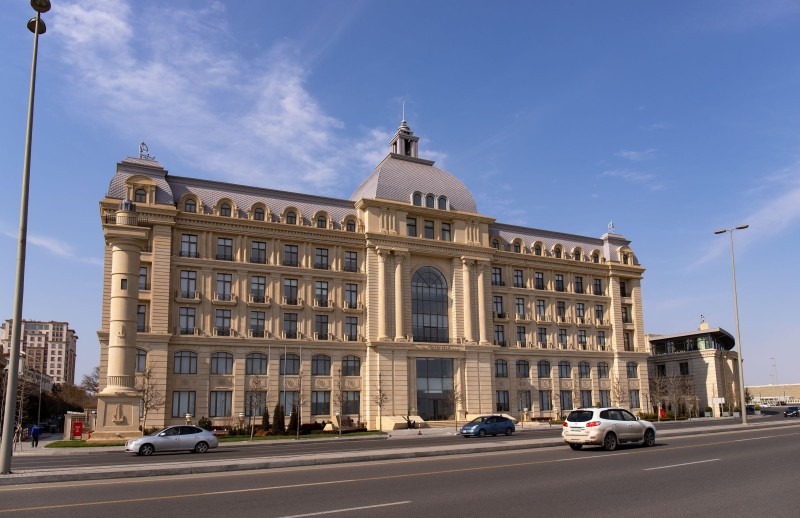
UK imposes sanctions on Azerbaijani state-owned tanker Zangazur for transporting Russian oil, says OCCRP
A tanker sanctioned by the U.K. for shipping oil on behalf of Russia is owned by the government of Azerbaijan, corporate documents show, the Organized Crime and Corruption Reporting Project (OCCRP) writes.
Targeting a state-owned tanker was a warning to Azerbaijan at a time when the oil-rich country has been striking energy deals with the European Union, according to Maximilan Hess, an analyst with the Foreign Policy Research Institute, a U.S. think tank.
“It is a clear warning shot across the bow that further Azerbaijani-sponsored efforts to support Russian sanctions evasion carries major risks to Azerbaijan’s diplomatic position and potentially wider economy,” Hess told OCCRP.
The sweeping sanctions package announced by the U.K. on May 9 also included five Azerbaijani citizens accused of trading Russian oil, as well as two companies.
It targets a “shadow fleet operation, masterminded by Putin’s cronies,” the office of U.K. Prime Minister Starmer said in a statement, adding that the oil shipments are “bankrolling the Kremlin’s illegal war in Ukraine.”
The Zangazur was listed among the nearly 100 vessels sanctioned, although the U.K. did not specify who owned any of them. It turns out that the Zangazur is owned by the Azerbaijan Caspian Shipping Company, according to an announcement posted on the company’s website. Financial statements for Caspian Shipping show that the government of Azerbaijan owns 100 percent of the company’s shares.
The U.K. announcement was not the first time Azerbaijan has been linked to Russian oil exports. In July 2024, the advocacy group Global Witness cited data showing that the Azerbaijani state-owned STAR refinery was processing large quantities of Russian crude.
Imports from the refinery to the EU were up 40 percent in the first three months of 2024, compared to the same period in 2022 when Russia invaded Ukraine, according to the data.
“The vast majority of STAR products imported by the EU this year have likely been made from Russian oil,” Global Witness said.
The imports followed a memorandum of understanding signed in July 2022, which aimed to double the amount of gas the E.U. imported from Azerbaijan as part of the bloc’s efforts to wean itself off Russian energy.
Last month, European Commission Vice President Kaja Kallas travelled to the Azerbaijani capital of Baku to discuss trade with Foreign Affairs Minister Foreign Affairs Jeyhun Bayramov.
Against that backdrop, the U.K.’s decision to sanction Azerbaijani citizens, companies and a government-owned tanker is significant, according to Hess.
He added that the energy giant formerly known as British Petroleum has major operations in Azerbaijan, and said Britain “has historically been reluctant to take any action to target Baku given the importance of the Azerbaijani market to BP.”
The state-owned Zangazur has paid regular visits to Russia over the past year, shipping data shows. It traveled 11 times to Primorsk, a Russian port a few hours west of Saint Petersburg, which hosts an oil terminal.
The data shows that the Zangazur went six times to the Turkish port of Nemrut, outside of Aliaga. The Turkish city on the western Mediterranean coast is where Azerbaijan’s state-owned STAR refinery is located.


